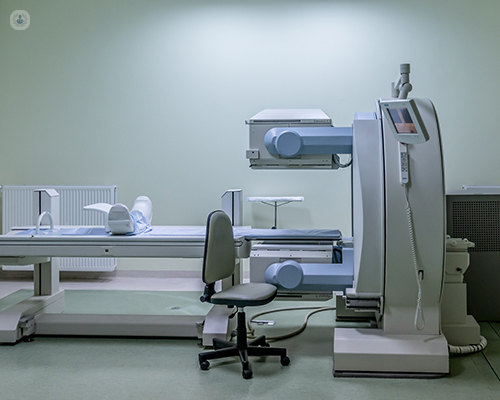Ankle arthritis: a complete guide
Written in association with:Mr Jasdeep Giddie is a renowned orthopaedic surgeon based in Wexham, Windsor and Slough. In his latest online article, he explains the causes, symptoms and treatment of ankle arthritis, among other fascinating points.

What can cause arthritis in the ankle?
There are a number of causes of arthritis within the ankle, the most common of which includes a family history, previous injuries which could be soft tissue injuries and ankle fractures, infections within the joint and other autoimmune conditions such as rheumatoid arthritis.
What are the symptoms of ankle arthritis?
In the early stages of ankle arthritis, symptoms would include pain on exertion – such as walking or running. Often this pain progresses and in the latter stages, the pain can become so severe that it can stop people from being active and/or keep them awake at night. Other symptoms include a reduced range of motion and swelling. The combination of the above symptoms can cause patients to alter their walking which can cause pain in their other joints.
How is ankle arthritis evaluated and diagnosed?
With every patient an evaluation will begin with careful and detailed history and examination, followed by x-rays and occasionally further tests may be required such as an MRI or CT scan.

What conservative treatments are effective for ankle arthritis?
Conservative treatment often involves a modification of lifestyle by avoiding high-impact activities, followed by the use of painkillers and occasionally physiotherapy. Your surgeon may suggest an injection within the ankle joint using local anaesthetic and steroids, which can aid as a diagnostic tool but will also help relieve some if not all of the symptoms.
Is surgery ever required for ankle arthritis?
Surgery is only considered as a last resort if the conventional treatments have failed. There are 2 main options available to treat ankle arthritis – an ankle fusion or an ankle replacement. Your surgeon will discuss which treatment would be best suited for you.
Can lifestyle measures also help?
Lifestyle measures have a key role in managing some of the symptoms of ankle arthritis such as avoiding high-impact activities and swapping them for alternatives such as swimming or biking. Maintaining a healthy body weight will reduce the pressure exerted on the ankle. Your surgeon would be able to advise you regarding which ankle support is best suited.
Mr Jasdeep Giddie is a leading consultant orthopaedic surgeon based in Wexham, Windsor & Slough. If you would like to book a consultation with Mr Giddie, you can do so today via his Top Doctors profile


